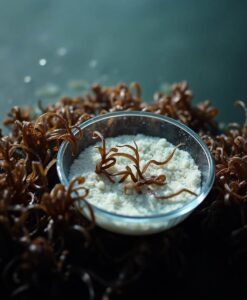Beyond lab dishes, materials that work well for cell culture could change how we test medicines and study disease. If seaweed-derived scaffolds allow human cells to behave more naturally, experiments may yield clearer answers without relying on animals. This could speed up research and reduce ethical trade-offs, while opening new routes to repair damaged organs or screen drugs more effectively.
The idea connects directly to questions about human potential and inclusion in science. New, affordable biomaterials could broaden who can participate in research and whose biology is represented in studies. Follow the full paper to learn how a plant from the sea is being engineered for human use, and what that might mean for health care, research access, and the future of safer testing.
Scientists have found an unlikely new material for growing tissue: Seaweed. The ocean plant, best known for wrapping sushi or floating along the shore, may soon help doctors repair hearts and reduce animal testing. In a study published Oct. 21 in Biointerphases, researchers…

